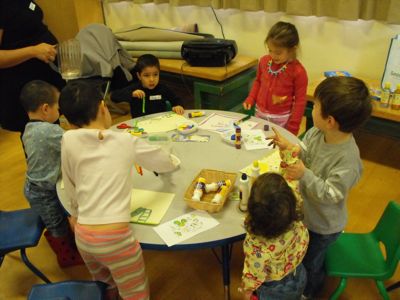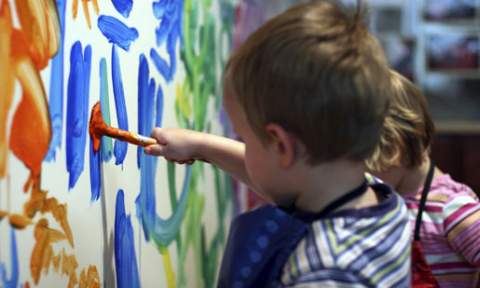March 13, 2012
Arts education needs to be protected
By Thomas M. Menino and Laura Perille
In the 1840s, Horace Mann, the great champion of public education, insisted that each and every Boston child – not just the wealthy or the talented – should learn how to draw. Today, Boston is renewing this promise by reestablishing high quality arts education for all students as a core part of excellent schools.

At a time of great stress on Boston’s school budget, private philanthropists and charitable foundations launched an initiative to raise $10 million to increase access, equity and quality of arts learning for all students. The city and its schools stepped up with increased public funding for arts teachers.
It’s a model that can be replicated in cities and towns across the Commonwealth and the nation.
This year, 14,000 more Boston students are experiencing the arts in schools than three years ago. Nine of 10 students in the elementary and middle grades now receive weekly, year-long arts instruction in school, up from two-thirds in 2009. In the same period, twice as many high school students are accessing arts learning during the school day.
The Wallace Foundation recently announced a $4 million commitment to help further expand access to arts education in the city’s schools. Local donors, including the Barr Foundation the Boston Foundation, have already matched this with more than $4 million in contributions. The city has increased public spending on arts education by $2 million annually since 2009, adding 24 new arts teachers.
Why invest in arts education at a time when schools seem laser-focused on improving performance in reading and math skills?
Evidence shows that the arts matter. Arts have a positive impact on student achievement, motivation and engagement, critical and creative thinking, collaboration and team work skills.
Arts have the biggest impact on students of color and low income students. Yet nationally, African-Americans and Latinos are 50% less likely to have had access to arts instruction.
In many communities, arts education has suffered from years of neglect. The decline started with significant public budget shortfalls in the 1970s and 1980s that led school districts to drastically cut programs deemed not central to the academic mission. More recently, federal education requirements and the test-based accountability mechanisms of state standards-based reforms caused schools to focus on the subjects that were to be tested — reading and mathematics — at the expense of other subjects.
Surveys by the Center for Education Policy found that 44 percent of districts had increased instruction time in elementary school English language arts and math while decreasing time on other subjects. A follow-up analysis showed that 16 percent of districts had reduced elementary school class time for music and art — and had done so by an average of 35 percent, or fifty-seven minutes a week. Recently, school districts in Pittsburgh, Philadelphia, Los Angeles and San Diego proposed plans to cut arts programs and teaching positions to help balance their budgets.
Arts education is especially important here in Boston.
We have a thriving and dynamic cultural and artistic community that enriches our city for residents and visitors. Music, theater, and the visual arts give Boston a special identity. Participation in arts education is the strongest predictor of almost all types of arts participation as an adult. We need to maintain these unique assets by cultivating a population that appreciates the arts.
In making arts education a priority, Superintendent Carol Johnson has tapped the energy of our arts community to expand opportunities for our young people. At the school level, the expansion of arts education means that at the Edison K-8 School in Brighton, partnerships with the Boston Symphony Orchestra and a set design teaching artist have enabled the school’s four full-time art teachers to create a rich performing arts program and engaging school climate for their 850 students. Students with special needs and English language learners have shined on stage as lead actors in musicals and Shakespearean productions, while other students learn about stage management. The Dever-McCormack School in Dorchester is building a strong music program through a partnership with the Community Music Center of Boston, together with the school’s music specialists.
We view arts expansion as a catalyst for renewed energy in schools, increased engagement by students, and improved school choices for families. Over the long term it will enrich our young people, our schools, our neighborhoods, and our economy.
Thomas M. Menino is the mayor of Boston. Laura Perille is executive director of EdVestors, a nonprofit school reform organization.










